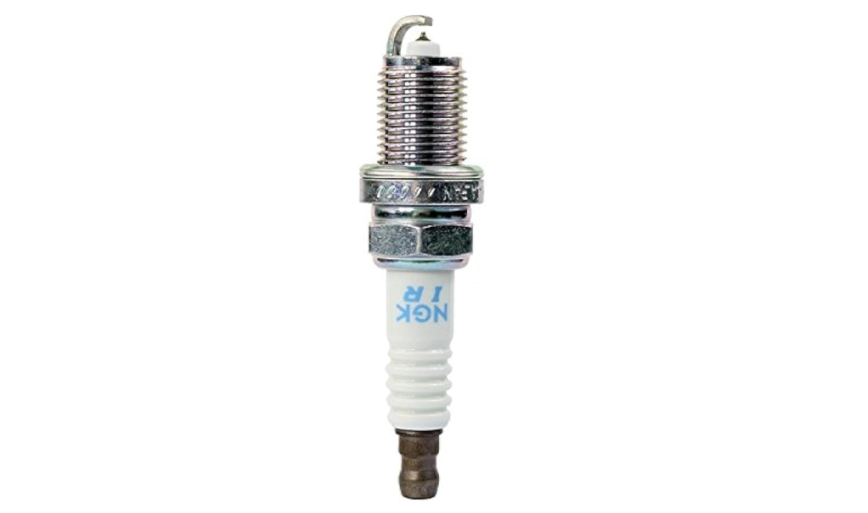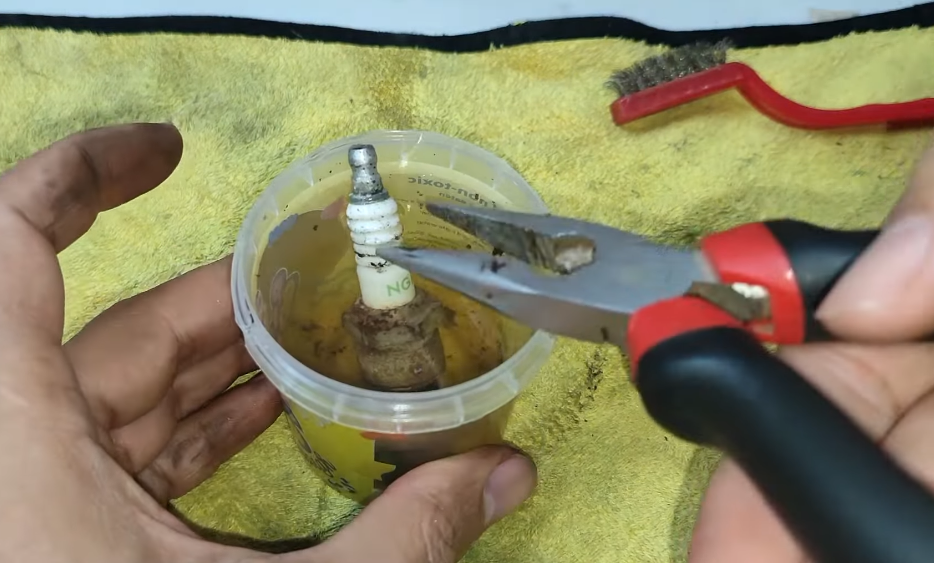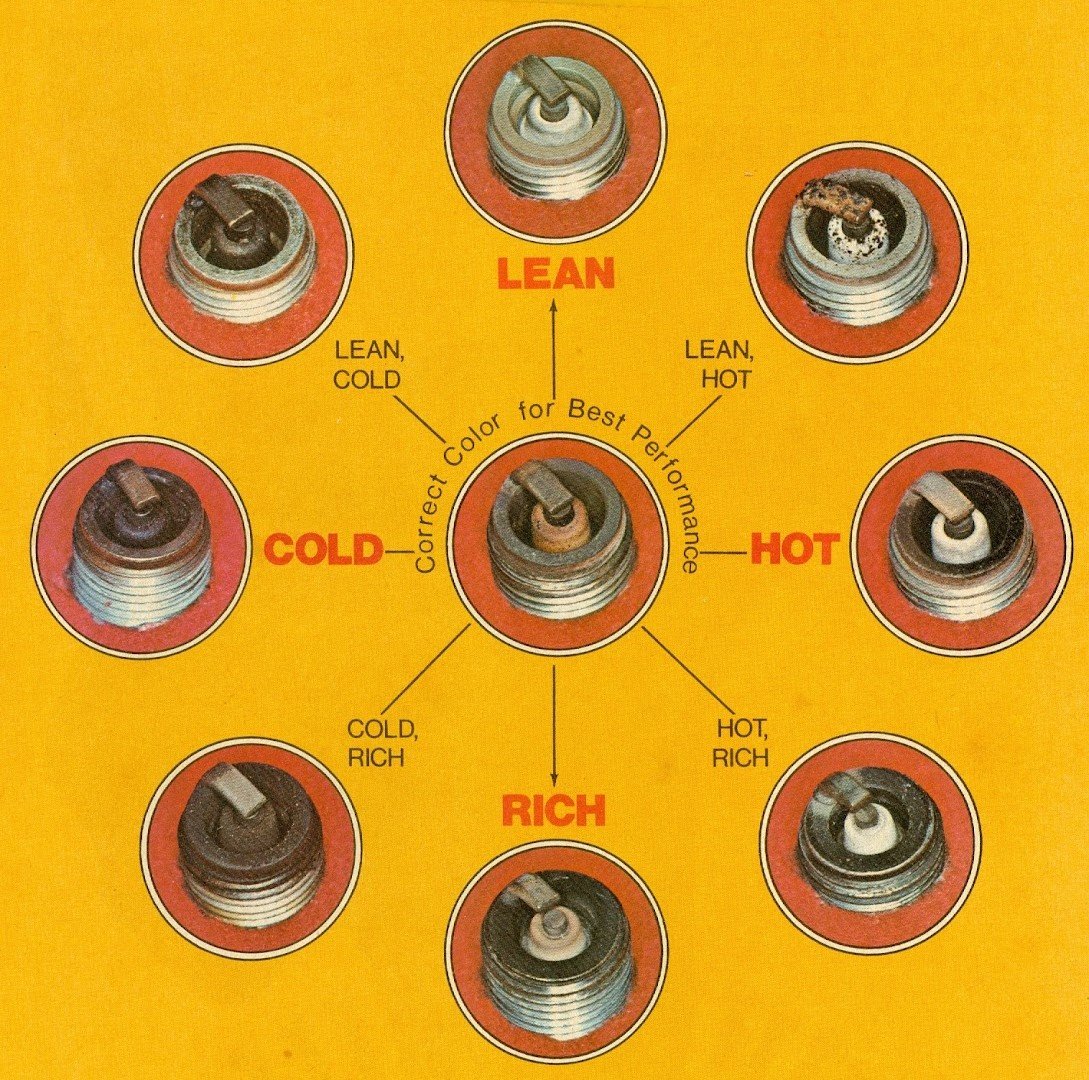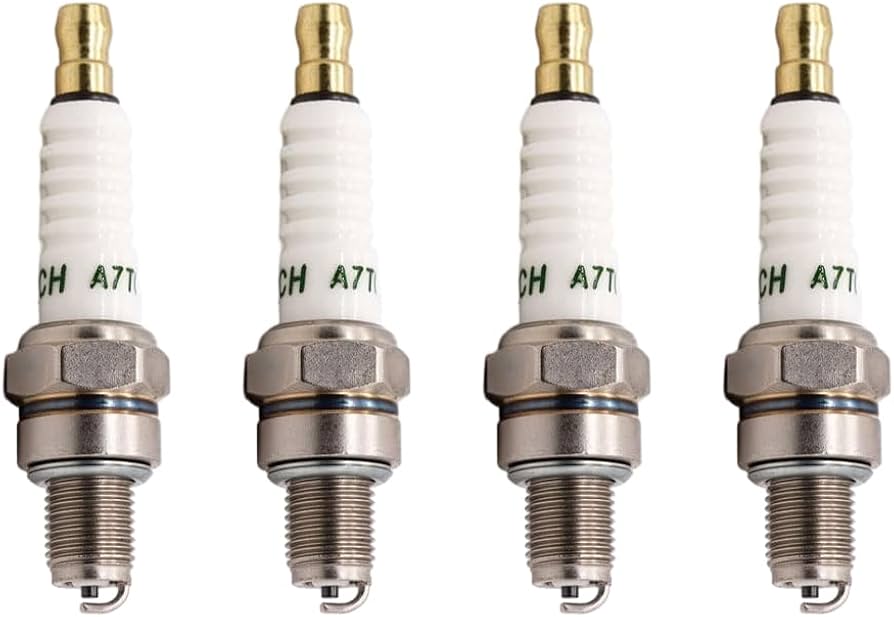Do different spark plugs make a difference? Yes, the material of a spark plug does matter in the engine. While copper is good for conductivity, it tends to wear out faster than most other metals, iridium is more efficient and durable for high performance cars, and platinum has a longer life.
Spark plugs may be small components of the car engine but it is the only reason your engine functions the way it does. The material of the spark plug can be a big factor in determining how well the spark plug works, how much fuel it uses and how long it lasts.
In this article, we will discuss the differences between copper spark plugs, platinum spark plugs, and iridium spark plugs, and why it is important to choose the right material for your engine to ensure long-term engine health and optimal performance.
Contents
What Are Spark Plugs and Why Are They Important?
Spark plugs are small but very important parts for the car’s engine. Ignitors are responsible for lighting the air-fuel mixture inside the fuel combustion chamber of the engine. If there were no sparks, the engine would be unable to make power, and wouldn’t be able to run. The spark plugs also help to regulate the temperature of the combustion process, which is important for maintaining a smooth and efficient operation of the engine.
How Do Spark Plugs Work?
A spark plug is an electrical device that consists of two opposing electrodes, a ground electrode and a center electrode, which are separated by a very small gap (distance). When the electricity from the ignition system passes through the spark plug, a spark will jump between the spark plug electrodes. This spark is then transferred into the air-fuel mixture inside the combustion chamber.
The spark has to ignite the engine. The spark plug also undergoes heat and pressure in the engine, so the material of the spark plug should not deteriorate to the point of being unreliable.
Types of Spark Plug Materials
While the most frequently used spark plug materials are copper, platinum and iridium, there are many other materials used in spark plug manufacturing. Each fuel has pros and cons, and the right fuel will depend on the type of engine your car has, how you drive and how you maintain your vehicle.
1. Copper Spark Plugs
Copper sparks plugs have been used for years because of their high electrical conductivity, which allows them to generate a strong and stable spark. Copper plugs are designed for performance engines (or race engines) that need high output spark.
Pros of Copper Spark Plugs
Copper spark plugs are highly recommended for high performance engines as copper offers great conductivity, creating a fast and consistent spark. Typically they are for race engines, or old cars that require more power in the ignition.
Superior Conductivity: Copper is a conductive material that offers a powerful and consistent spark to ignite the flame.
High Performance: Copper plugs can be used in high performance or racing engines where a faster spark is desirable.
Affordable: Copper spark plugs are the least expensive spark plugs available, making them a cost-effective option for vehicle owners
Cons of Copper Spark Plugs
Copper plugs will suffice for some time, but won’t last nearly as long as platinum or iridium plugs. This will increase replacement and repair costs.
Short Lifespan: Copper spark plugs tend to wear out faster than platinum or iridium spark plugs, and they typically need to be replaced every 20,000 – 30,000 miles.
Higher Maintenance Costs: Copper plugs are more susceptible to wear and tear, meaning that they may need replacing more often, leading to higher maintenance costs over time.
Best For: Performance engines or Vehicles that are due for a lot of spark plug replacement.
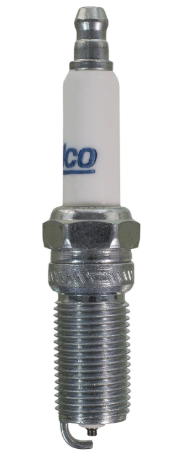
Platinum Spark Plugs
Platinum spark plugs will last longer than copper, and will be more reliable over time. They are usually fitted to modern cars by normal ignition. Platinum plugs have a life of 60 to 100 thousand miles, so they are a much better investment than copper plugs in the long term.
Pros of Platinum Spark Plugs
Therefore, the Platinum spark plugs are a more durable option than the copper spark plugs and will be more suitable for modern cars. These is a great everyday type of plug and can save you from the hassle of changing your spark plugs every couple of months.
Platinum spark plugs are very useful for a person who owns a car but uses it rarely and requires a long-lasting and a cheap spark plug for his car.
Longer Lifespan: Platinum spark plugs typically last for a longer period, usually between 60,000 and 100,000 miles.
Increased Efficiency: Copper plugs are known for being less efficient than their composite counterparts, leading to fewer engine misfires and increased fuel efficiency.
Lower Maintenance Costs: Platinum spark plugs have a longer lifespan which means you don’t have to replace them frequently, leading to lower maintenance costs.
Cons of Platinum Spark Plugs
Platinum plugs are less efficient compared to copper, and while they will last longer than copper, they don’t work as well as iridium plugs.
High Cost: The cost of platinum plugs is higher than that of copper plugs, due to the quality of the platinum metal and its longevity.
Moderate Conductivity: Copper, iridium, and platinum are great conductors, however, platinum is slightly less conductive than iridium or copper spark plugs which could affect the spark intensity slightly.
Best For: Late model cars on factory type ignitions under average driving conditions
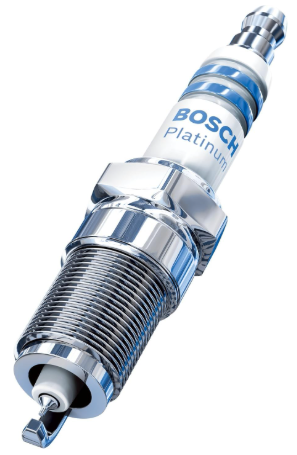
Iridium Spark Plugs
Iridium is the most technically advanced and most durable material on the market for spark plugs today. Iridium Spark Plugs: Iridium spark plugs are known for its excellent conductivity, durability, and performance. Spark plugs are ideal for high performance cars and luxurious motor vehicles and engines that need quality and high quality of spark plugs to achieve perfect ignitions.
Pros of Iridium Spark Plugs
Iridium spark plugs are the most ignition rich, longest life, most efficient spark plug on the market. They are the best choice for drivers who want their vehicle to perform to the maximum with minimal maintenance.
Iridium spark plugs are an excellent choice for anyone who is interested in getting the best performance, fuel economy, and durability from their engine.
Longest Lifespan: Iridium Spark Plugs have the longest service life with lifespans typically exceeding 100,000 miles.
Great Conductivity: Iridium has great conductivity meaning more spark and more ignition.
Fuel Efficiency: Iridium plugs can help to improve your car’s ignition process, which can result in better fuel efficiency, meaning you won’t have to use as much fuel to cover a given distance.
High Performance: Some of these plugs are designed specifically for high-performance engines or luxury vehicles that demand precision and durability.
Cons of Iridium Spark Plugs
The only real problem is that it’s fairly expensive to get started with. However, this comes at the cost of a very long life span, and high performance.
Expensive: Iridium plug is considered to be the most expensive plug available in the market. However, these are more durable and will pay for themselves as an investment for a longer period of time.
Not Always Recommended for Older Vehicles: In the case of older vehicles with simpler ignition systems, iridium plugs may offer little to no performance improvement over platinum or copper plugs.
Best For: High performance, luxury or modern cars that need a strong spark for reliable and consistent performance.

Do Different Material Spark Plugs Affect Performance
The material of the spark plug has a direct impact on many performance factors including engine performance, fuel economy and overall spark plug life. Other areas of material selection sensitivity are shown below.
Ignition Efficiency
The composition of the material used to fabricate the spark plug could affect the combustibility of an air-fuel mixture on the interior of the combustion chamber. Iridium also burns more effectively (i.e. better spark). High-output plugs use a copper plug and are far more efficient but will not work for street use (normal plug requires much less spark than a high output plug).
Longevity and Maintenance
The life of the product is directly related to the life of the material of the spark plug. Copper plugs (cheap as they are, but don’t last long) must be replaced frequently. Since platinum and iridium plugs last much longer than other precious metal plugs, you won’t have to replace them as often and won’t have to spend as much on maintenance, saving you money in the long run.
Cost Considerations
Copper: Copper Spark plugs are more affordable to purchase but you’ll need more of them and again, that will cost you more.
Platinum Spark Plugs: Platinum spark plugs are costlier than the other plug types, but they will last longer and are good value for money.
Iridium: Iridium plugs are the most expensive, however, they also last the longest and perform the best so will be a cost effective solution in the long term.
Comparative Overview
We also provide a comparison of copper, platinum and iridium spark plugs with conductivity, life and cost performance factors to help you make a better choice. This will help you to better understand which option is best for the needs of the vehicle.
| Material | Conductivity | Lifespan (miles) | Cost | Ideal For |
|---|---|---|---|---|
| Copper | High | 20,000–30,000 | Low | Older vehicles, racing applications |
| Platinum | Moderate | 60,000–100,000 | Moderate | Standard modern vehicles |
| Iridium | Very High | 100,000+ | High | High-performance vehicles |
How to Choose the Right Spark Plug for the Vehicle
The type of spark plug that you should use for the car will depend on what type of engine you have, how the car is used, and how well the car is maintained.
Consult the Vehicle’s Manual: It’s important to check the vehicle manual for the manufacturer’s recommendation regarding the spark plug material.
Driving Conditions: Installation of Platinum plugs can be done in any common car. The copper plugs are recommended for an older vehicle or a higher performing engine while the iridium plugs are recommended for a higher performance and luxury vehicle.
Long-Term Savings: Although iridium and platinum plugs are more expensive, they are also claimed to have a longer lifespan, meaning they won’t need to be replaced as frequently over time.
Frequently Asked Question
Here are some FAQs about the impact of spark plug materials on engine’s performance –
1. What Are The Differences Between Spark Plug Types Under Fuel Economy?
Yes, high ignition efficiency: Materials like iridium can have a higher ignition efficiency than traditional spark plug materials, which can result in better fuel combustion and fuel economy.
2. Can iridium plugs replace copper plugs?
Yes, as long as the replacement plugs are the correct plugs for the type of ignition system your car has. Iridium plugs are a great upgrade for performance cars.
3. How Often Do I Need To Replace My Spark Plugs?
Copper: Every 20,000-30,000 miles
Platinum: Every 60,000-100,000 miles
Iridium: Every 100,000 miles or more
4. Is it worth the cost to pay for iridium spark plugs?
In conclusion, iridium spark plugs are a worthwhile investment for those who value long-term reliability, outstanding performance, and fuel efficiency.
5. Do spark plugs affect engine emissions?
Yes iridium spark plug will help in better combustion, which in turn helps the car in reducing the emissions.
Conclusion
The material of the spark plug can have a significant impact on the performance of the engine, including ignition capabilities, fuel efficiency, and durability. Copper plugs: The copper plugs are the cheapest and are good but not as long-lasting as the platinum and iridium plugs. Platinum plugs: These are a compromise between price and longevity, and are perfect for the standard performance vehicles. Iridium plugs: These are considered the longest-lasting and are great for high-performance or luxury vehicles.
By recognizing the differences between these materials, you can make an informed decision regarding the spark plug that’s right for the vehicle and driving style, ultimately enhancing the vehicle’s efficiency and cutting down on maintenance expenses.

